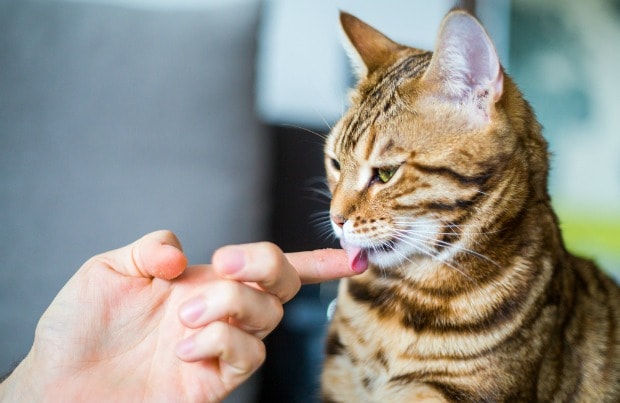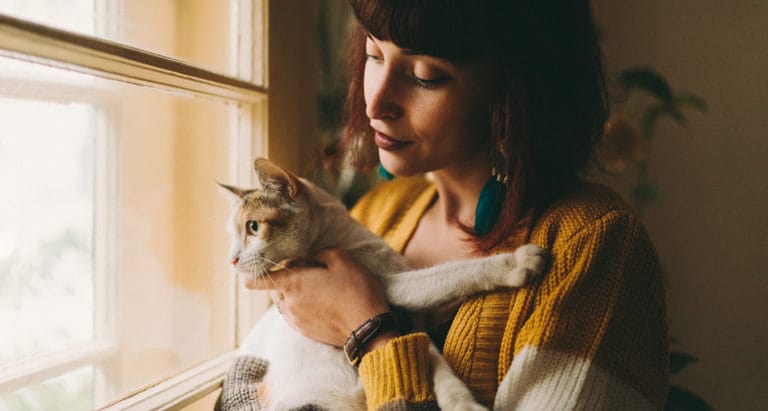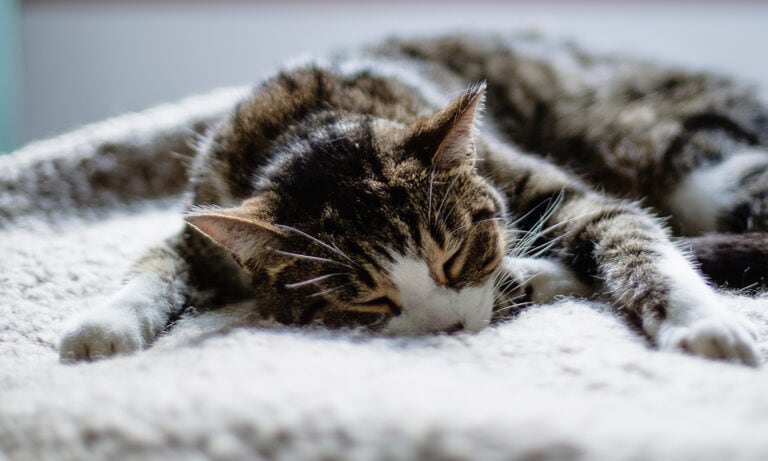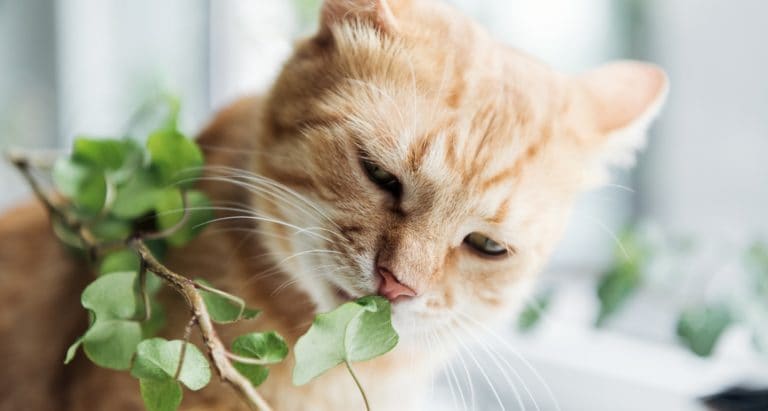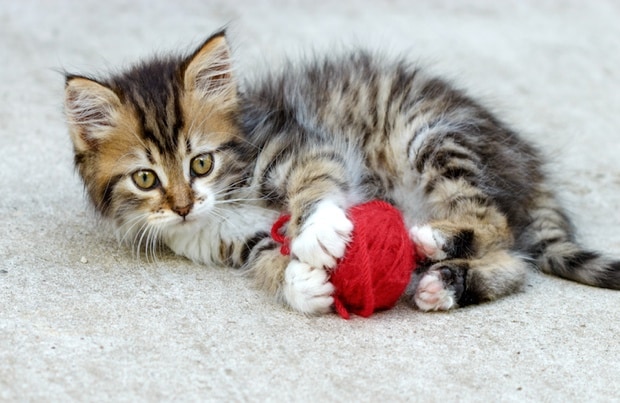If cats could talk, they could explain what they’re really doing when they lick and paw at our hair, but since cats are mysterious and tight-lipped by nature, the humans who study them can only theorize on the meaning of this behavior.
If your cat pats your head with her paws, it may feel like she’s trying to brush your hair, but in most cases, she’s simply kneading, says Dr. Taylor Kirby-Madden, a veterinarian at the Angell Animal Medical Center in Boston.
Cats knead by pushing their paws against a surface in a rhythmic motion. Kneading is usually a sign of a cat that’s happy or seeking attention, Kirby-Madden says.
“Typically, cats don’t groom each other with their paws,” she says. “Grooming is strictly licking.” If your cat licks your hair, she says, it probably means she likes you. “It’s an expression of affection.”
If your cat has a thing for your hair, it may say something about your relationship. The closer you are to your pet, the more likely she is to fancy your tresses, says Pam Johnson-Bennett, a Nashville, Tennessee-based cat behaviorist.
“The stronger the bond you have with your cat, the more likely it’s going to happen,” Johnson-Bennett says. “If cats are not comfortable being close to you because they don’t feel safe, you’re not going to have that.”
Experts believe that these behaviors are a form of allogrooming, a social and bonding behavior that normally occurs between cats that have a friendly or familial relationship.
Cat Grooming Habits Explained
Cats lick and groom one another for many reasons. In the wild, they do it to create one group scent, Johnson-Bennett says.
“Out in the wild, that’s crucial to survival,” she says. “When a cat leaves the colony and comes back, they recognize another cat by scent. Scent plays a huge role.”
Mothers will lick their kittens to clear dirt from their skin and will lick their bottoms to stimulate defecation and urination, functions newborns cannot control voluntarily during the first three weeks of life, says Dan Estep, an applied animal behaviorist in Denver, Colorado.
Cats that share a home together and get along will also lick each other’s heads, Estep says. It’s a social behavior like head or face rubbing.
“One theory is cats use allogrooming with people the same way they do with other cats,” Estep says. “It’s a friendly bonding behavior. I’ve had my own cats lick my hair.”
Make no mistake, though, cats do not think of us as other cats.
“They think of us as being friends they can have a strong relationship with,” Estep says. “They use cat-friendly behaviors to express that.”
Cats can tell the difference between cats, humans and other animals, Johnson-Bennett says, and probably choose to lick our hair because it’s the closest thing we have to fur.
“Out in the wild, [grooming] crucial to survival,” she says. “When a cat leaves the colony and comes back, they recognize another cat by scent. Scent plays a huge role.”
Of course, it’s also possible that hair-licking could be a sign of affection for your shampoo or conditioner, which is more of a feeding behavior than a friendly behavior, Estep says. You could test the theory by using different products on your hair.
“If you use the same shampoo every time, and the cats lick and lick, then you use a different shampoo and they don’t lick it, that would be a sign of an odor preference,” Kirby-Madden says.
Is it Safe for Cats to Groom Humans?
Anything your cat’s tongue makes contact with could end up being ingested, so if you use medicinal products on your head or skin, don’t let her lick that area, Kirby-Madden says.
“There certainly are topicals that humans put on their skin that can be dangerous to cats,” she says. For example, some dandruff shampoos can be toxic.
While it is theoretically possible for cats to ingest human hair, they would have to swallow a good amount of hair before it caused any health problems, Kirby-Madden says.
Ultimately, you know your cat better than anyone else, so if she starts grooming you out of the blue, it could be a sign that something’s wrong, Kirby-Madden says.
“Cats have a limited range of expressions to tell us how they’re feeling,” she says. “[If grooming you is] brand new behavior, or if it’s excessive or increasing in frequency, then it would be time to go to the vet.”
If you don’t enjoy being your pet’s personal ice cream cone, you can discourage the licking but do it gently. Try to distract her by petting her or giving her a fuzzy mouse, fishing line or other appealing toy to play with, Johnson-Bennett says, adding that it’s important not to become angry with or reprimand your pet for licking you. Whatever you do, don’t get angry.
“Try to enjoy and understand what a sign of affection it is,” Johnson-Bennett says. “Don’t push your cat away. It’s very damaging to the relationship if you yell at the cat or push her off the bed. You want to keep it positive.”

Lynne Miller is a freelance writer, communications consultant and dog lover. A Chicago native, Lynne lives with her family in Brooklyn, New York.
Share:
